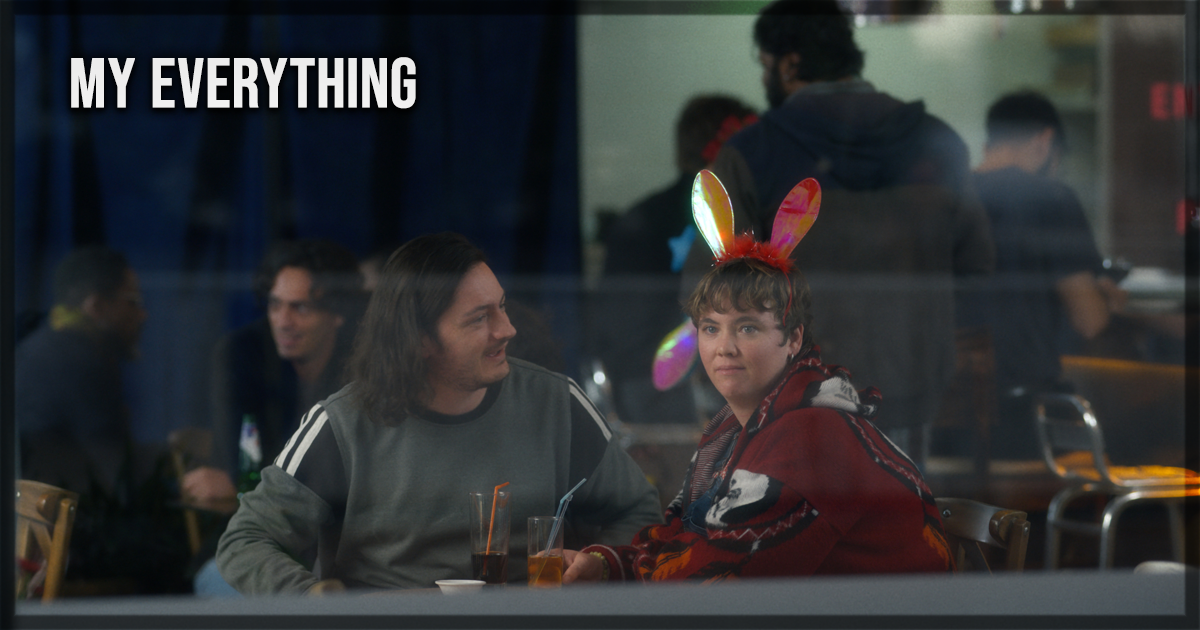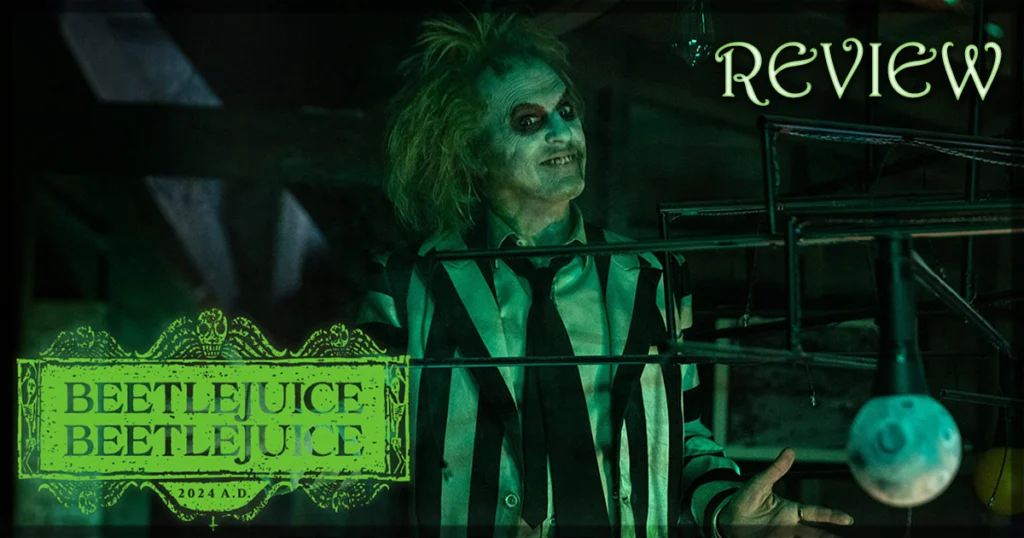The empty nest is notoriously difficult for parents to deal with, but My Everything (Mon Inséparable) has taken a fresh angle to this ordinary dilemma: the adult son who’s ready to flee the coop has an intellectual disability. Joël (Charles Peccia Galletto) is in his late twenties/early thirties and lives with his mother Mona (Laure Calamy). Because they are French, he has a part-time carer and a job through an organization designed to help adults like him, so he is a functioning member of society. Joël is also Mona’s only child and her entire adult life, for she was a young mother, has been built around his needs. My Everything is about Mona’s realization that her work as a parent is done. How she handles this is the question, and the narrowness of the movie’s focus is what allowed it to be made. It achieves exactly what it wanted to and that is, well, everything.
The way in which Joël forces the question of his independence is as old as time: he knocks up his girlfriend Océane (Julie Froger), who he met at the career center. Océane’s parents are beside themselves, even though they like Joël, and react with some nasty allegations. It just somehow never seemed to occur to any of these parents that their adult children have the same physical desires as anybody else. And while everybody else knew about Océane and Joël, Mona didn’t.
Nurses and social workers ask Océane some careful questions, and it is immediately clear that she knew what she was doing, enthusiastically consented, very much wants this baby, and understands the basics of parenthood – feed it, love it, clean it, hold it when it cries. So the train has left the station. For his own part, Joël is thrilled, since he loves Océane and is excited to be a better father than his own was. You see, he’s never known his dad, since Mona told him he left them to go work in Antarctica, which is why he’s never been in touch. Perhaps only someone as uncomplicated as Joël would believe that. On the other hand, families are never simple.
For example, Mona is not happy at all with the baby news and mainly concerned with how she’s going to be impacted. This is kind of a surprise since Océane’s family obviously will be doing the heavy lifting. Rather than deal with things, she goes out for caramel vodkas with some friends and ends up bringing home a nice Belgian man named Frank (Geert van Rampelberg). Even though he is tall and solvent, with a full head of hair, Frank has been out of the dating game for so long you can tell he’s stopping himself from thanking Mona for the sex, though of course when Joël discovers him in the hallway things don’t go well.
Luckily before that things went well enough for numbers to be swapped, so when Mona decides to take Joël to Antarctica – in reality a beach on the northern Belgian coastline – Frank shows up when she calls. But a mother never stops being a mother no matter how old her children are, which also means a mother never stops being blamed when something goes wrong. This is unfair, screams Mona. She has always been alone and no one knows how hard she’s worked. But she is still cutting up Joël’s food for him and pitching a fit in the middle of the café when he complains she’s treating him like a baby. He has a point, of course. But if Mona isn’t Joël’s mother than who is she?
Writer-director Anne-Sophie Bailly chose to center the disabled actors in her story which did in some ways limited what her movie could achieve. But it also makes a very sharp point about how people with intellectual disabilities are normally depicted in art and the respect given to adults who might be a little slow.
Mr. Peccia Galletto has a loveable and charming screen presence, and the fact that Joël is more insightful about his and Mona’s relationship is pretty funny, if nothing else. My Everything looks and sounds great, and the street parade scenes do a lot to open out not only how Joël sees the world, but how the world sees him. For the most part people are kind, or at least aware they should be kind even if they aren’t.
If this movie had been done from the point of view of Océane’s mother, it would have been about how responsibilities increase with age, instead of decrease. Ms. Bailly wanted her movie to be about how a person is more than their responsibilities. Ms. Calamy has made something of a specialty in playing harried working-class single mothers, and here she does her usual fine work as someone who is unmoored by the idea that her life’s work is finished. Her son has the safety net in place that allows him to be independent, and this means she can be independent too. How someone fulfils their responsibilities is their measure as a person, and My Everything does a pretty great job of ensuring its characters are measured correctly.
My Everything recently screened at the 81st Venice International Film Festival.


